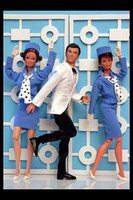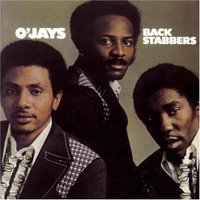
I spent today in a bit of a haze, muddled thinking and slow movements. This was not due solely to the heat which has settled over Cold City, perfectly pleasant in the shade or in the embrace of my northern-facing garret, which receives no direct sunlight, but positively unbearable under the full glare of the sun. No, it has to do with the fact that I have a sleep deficit from an entire week of having to wake up early, either to catch a plane, rent a car, or attend a panel. Yes, darlings, I have been a conference road warrior, and I have the scars to prove it.
First off, I for one would like to know when did all available flights move between 5:00 am and 6:30 am? The abstraction of an “a.m.” following a seemingly random time between 4 and 7 on an itinerary becomes a very ugly thing in reality, especially if you have decidedly nocturnal habits, such as yours truly. En route to my summer conference, I went to bed, following teaching that night, dinner, goodnight telephonic kisses to Mr. Gordo, and packing, at about 2:00 am, to sleep for a whole hour and twenty minutes, when I had to get up, shower, and schlep to drop off the car at Prancilla’s house and take the train to the airport to catch my flight to Green Town, the site of my conference. Additionally, my original return to Cold City was at the decent hour of 11:20 am, but a cancellation meant I had to spend the night in Philadelphia and had to depart, again, at the ungodly hour of 6:30 am (the airport shuttle fetched me at 3:45 am).

The time when flying seemed glamourous and sophisticated seems a little distant when you arrive at the airport with bloodshot bug eyes, grabbing blindly for a coffee like a mole, and chain smoking on a bench outside to load up on enough nicotine to get through security and make your way onto the slim aluminum tube that promises to carry you, rumpled and stale and grumpy and bored, to wherever your destination may be. Needless to say, I’m not sure 5:00 am is anyone’s star turn, except for infants, the elderly, and the perpetually chirpy “morning persons” that go about their business while decent people such as myself catch up on their beauty sleep. This sort of nocturnalia is really only accessible in North America, which through electricity and the phenomenon of a 24-hour world, keeps the lights burning bright for those of us who decide we have to refill a prescription, wash our whites, or pick up a tin of ridiculously expensive Illy Espresso Grind after midnight. I think I would curl up and die if I lived in a good city like, say, Geneva, where everything is shut on Sundays and after 6:00 pm (7:00 pm for the Migros) every other day. How would I ever get anything done? I would need an assistant to run errands while I slept the days away.
In any event, I travelled east for a small academic roundtable in my field of study, which was, as we academicians coyly say, interesting. I have never been to Green Town and its big university, but have applied several times, to no avail. Aside from the pleasure of what turned out to be a small and intime academic gathering that supported several compelling conversations (Money Quote Day #1: “…melancholic identification with the lost object”), and the opportunity to meet intriguing faculty members from Green Town U. as well as other institutions up and down the east coast, a large part of the thrill of going to small academic conferences (as opposed to the annual national professional gatherings which are rarely pleasurable, much less thrilling, unless you count the meaningless casual stress sex) is that one finds one’s voice again, outside of and different from the caution we exhibit on our home turf. As well, one can see (if one is paying close attention) those same stresses and fractures in the faculty from the host institution, in conversation, commentary, and socialising, although sometimes to catch those signs is akin to hearing a dog whistle.
So, with this freedom in mind, I actually spoke my mind and attempted an honest dialogue, which I think was received well by most participants, although did cause some tension in the closing panel, which was devoted to a discussion of the future of the field, always a somewhat unpleasant task, as it brings together the changes and tensions in the field that are especially pronounced between academic generations. In particular, there was a moment of tension between myself and Provost Diversity (an older faculty of colour who is now in administration at Green Town U.) over my critique of the use of “activist-scholar” in our field. In short, and as I have intimated before, my problems with the use of the term “activist-scholar” in the institution have to do more with the self-aggrandisements associated with such a state of grace rather than the actual descriptive, especially in terms of its symbolic value for both the self-described “activist-scholar” as well as the university, which may make a sour face in public but behind the scenes loves such performativities of resistance, especially from those it employs and pays to be different, and hence, resistant by definition.

Unbeknownst to me, this was also a moment when one is riding roughshod over institutional particularities that one is unaware of when one doesn’t work at said university. There was a history here, and my comments touched a nerve. Oops. I was also struck by the new/old trick of dismissal in the academy (at least my version of it), which is to declare any statement you disagree with as binaristic and didactic, and therefore, impossible. This was one of the sticks used against me, by both Provost Diversity as well as others (Acolytes? The afraid? Who knows or could even possibly tell?), when it was clear to anyone who was listening that I was not trying to call into question the particular association of activist and scholar as a linguistic formation, but rather as a socio-political circulation. The smashing of shibboleths (of which the “activist-scholar” constellation is decidedly one in my field) has always been a favourite pastime of mine, but I would hope that such efforts are not exclusively destructive, but lead us to greater critical thinking. I mean, I think if I liked the sound of my own voice that much I would be a lot more famous by now.
But this binary critique sleight of hand is intriguing, for on the face of it speaks to some sort of greater synthesis of socio-cultural conditions that I would agree with, certainly on the level of paradigm. But in my recent experience, the accusation of binaristic thinking doesn’t promote the alternative of a holistic synthesis of dyads or even the holding of different conditions in tension or accommodation, but rather maintains the old dyads and conditions under new PoMo descriptions. A good example of this is identity essentialism: we “know” identity is constructed and sustained through discourse, but many of us still believe (sometimes) in the emotive power of identity essentialism and identification, and (again, sometimes) we use our new tools to reinscribe the old understandings. Everything nowadays may be “contingent,” “interstitial,” “intermediate,” “tentative,” “always already,” but in the end, it’s the same old story (we are still known, on some level, to ourselves and for others, in the old essentialist ways), for both ourselves and the continued dominance of white supremacy, patriarchy, heteronormativity, and all those other yucky things. Whether this speaks to the power of hegemony in structuring our beliefs or the power of the emotive as it is structured through oppression, I cannot say for sure. I will acknowledge that the questions my field confronts are serious, deep, entangled, emotional, and are therefore difficult by design.

If I had to elaborate, I would say that my approach to the dynamic of academics setting themselves up as social revolutionaries is grounded in a practical understanding of our working conditions: we labour in institutions with reactionary politics. Nobody likes a troublemaker, universities perhaps even less so than Capital, which at least on the face of it (and as opposed to the university) prizes initiative. Ergo, the “activist-scholar,” especially if employed by R1 universities, is someone “always already” inscribed in a system of meaning, a reactionary politics of cooptation that makes such a formation, on a certain level, an oxymoron. So, in this pragmatic way, I think we need to exhibit more caution over the ways in which we imagine ourselves within this particular machine. Does this mean activism isn’t or cannot be corollary to scholarship?
Of course not, but that doesn’t mean slapping a label on oneself automatically turns one into a radical. Let’s face it, writing dense theoretical texts with catchy titles and inscrutable logic while basking in the glory of fame and power in the Shop is hardly revolutionary outside of the realm of the academic symbolic. Is it an accident that the “activist-scholars” one knows most often are also the most successful in the Shop? How many “activist-scholars” do I know who have clawed their way up the academic ladder by selling their difference in both their work and their presence on campus? OK, probably not enough to fill a Dixie Chicks concert, but enough to make the example stick. Whose blood is on their hands? Whose face did they step on in their effort to get to the middle? Ambition is fine, even Machiavellian ambition (the kind the academy tends to breed). I just don’t want the pretension of social change or social good attached to it uncritically: “Not only are they bastards, but they are doing it for a good cause too! Don’t you suck (even more)?!” Give us a break.

I might hasten to add that this is not a call for academic monographs to assume the dimensions of the kindergarten primer. This is not an anti-intellectual screed. The highly specialised language we speak amongst ourselves has a place and use value that can be erased in these criticisms (anyone remember Alan Sokal?). The very language of this blog works on the multiple levels of the life of the contemporary academic: theoretical, pop, colloquial, dense, personal, thick. This is also not some antediluvian Marxist fantasy of pure revolutionary action. It is not meant to privilege the actions, important nonetheless, of those working in the “real” world, organising folks or collecting signatures or holding a placard in the rain someplace while I sit in my garret, pecking at the keyboard. Their actions are not necessarily more important or real than those of us working in the realm of ideas. No, this is rather a call for us to “wake up to ourselves,” realise something about the material world we inhabit (namely, the university), look in the mirror, and be as honest as we can with ourselves and others while working under difficult conditions and with limited resources.
In retrospect, aside from probably ruining any chance I may have had of ever landing a job at Green Town U., the lasting impression I have of this moment is how difficult it is to actually foster conversation and dialogue in the academy, how entrenched the battles between older/tenured and younger/junior faculty seem to be, but also, how nice it is to be able to just be out there, to say what one wants to, without worrying that Professor Grey Beard or Provost Diversity is going to remember this moment down the line.

The ridiculousness of these long memories isn’t that you are killing Professor’s cat, or keying Provost’s fancy BMW, or besmirching their names in public, but rather that you deign to actually offer an opinion, polemic perhaps, but an opinion nonetheless. And I guess in this sense you are besmirching their name, for you are calling into question their worldview, their sense of cardinal direction, and that, I have found to my peril, is deeply threatening to many faculty members. It is uncredentialed knowledge, and must be banished, along with its messenger. How tiresome! Aside from how positively lifeless this response may be, what is really reveals is how the Guild paradigm of apprenticeship in the university is utterly bankrupt, along with mentorship and the art of mentoring, if we define mentoring as anything but a ceaseless towing of the line. It is also at moments like this when the mask slips off that one has to wonder what the hell we are doing in the Shop? How does it keep running? What are the risks of this Potemkin village of eggheads tinkering with their all-important knowledge machines while Mammon lords over the world? Maybe that is the point, certainly a view held by people like Todd Gitlin (not necessarily my own). “Activist-scholar” indeed! In any event, as I said before, it was interesting…
I also had two moments of social serendipity on my voyage, one of which was seeing an old college chum, Ms. E., after many years. Ms. E. and I knew each other, were friendly, but were never really "friend friends" in a close way. Rather, we were entangled in each other’s social webs and networks at Prestigious Eastern U., a not unpleasant connection. I still have a picture of her from those years, a close-up I took one summer, during my pretentious photography phase. Like all of us, she has changed, grown, but still resembles the girl in the photo, now in storage in Skanque Huore’s garage. In fact, I have a private notion (as opposed to our popular culture, which seemingly has its gear stuck at the age of 24 as the ideal) that people grow more fabulous as they age, mature, grow into themselves, and the thirties and forties are when this maturation starts yielding real results. To wit, while Ms. E. was always pretty, now she is beautiful, womanly, sophisticated, brilliant, thoughtful, confident, introspective, with a rich, embodied voice. She has had a certain amount of academic fame, has done well, but like all faculty of colour, is cautious and tentative about the direction of the future, both personally and professionally.

We had the opportunity to have a brief brunch before I left town, and this conversation touched me in powerful ways. We had, of course, a certain amount of catching up, but I was struck by how similar our states of critique of academia and academic life were, even though we are in different places in the university spectrum. This correlation of experience and thought made me think of Forster’s maxim, “Only connect!” and the joy of making the connection, of meeting like-minded fellow travellers on our journeys, the beauty and pleasure of interlocution, of dialogue, of sharing. In Forster’s imagination, the connection the Schlegel sisters were seeking with the world, with ideas, with feeling, was opposed to the simplistic imperial brutalism of the Wilcox family. In the end the Schlegels and their vision win the day, however temporary or narratively engineered such a victory may have been (it was fiction, after all). And it was to these victories that my mind wandered after our brunch: how can the humanistic vision win the day, against powerful and ignorant forces arrayed against it? Another way of thinking this through is how can we actually find ways to think, to live as thinkers and intellectuals, in institutions increasingly dedicated to not thinking? How can we imagine a better place for ourseles and, perhaps, for our profession, that is, like fiction, a bit of a dream, the potentials of what is possible, and not (simply) some dreary documentary (we have had quite enough of that, it is called life). Most of us struggle to find our niche, but the important part is not to be afraid, of fighting or, alternatively, of leaving. Helen and Margaret show us one way to do this. Ms. E and myself are trying to find others as well.

The second moment of serendipity, briefly, was my unexpected layover in Philadelphia, a city I have always loved: home of American liberty, one of the historic and lively centres of the Black American diaspora, full of good memories. After a somewhat disappointing wait at the US Airways counter for rebooking, I rang up S. and J., the parents of my compadre Mr. Polemic (the father of my God child) who live in Philadelphia. Gracious as always, they immediately invited me over for the evening, and I made my way on SEPTA to their warm and beautiful home in Elkins Park, where J. greeted me on the street. We sat on the porch for a long time, catching up and chatting about Cold City, the past year, plans for the summer, then going in the house to find S. and snack on cheese and crackers and apples and tapenade. They always have such delicious things to eat, as they are consummate nibblers. I passed a lovely evening in their company, and was grateful for the generosity and companionship of this unexpected layover, as well as the surprise opportunity to see them again before summer back east.
The garden was beautiful, the food wonderful, the bed comfortable, the air relaxed and pleasant. The pleasure of connection again reinforced grace à the technological glitches that determine our lives. Even in the machine, beauty is possible.



5 comments:
Oso Raro, Beauty is possible. After reading your post I have no doubts.
Who are you? How do you manage to make sense out of everything? Does everything make sense or it is just your skillful use of language, the accelerated rhythm of your thinking? I’m struck by the questions you subtly crafted in this entry. I’m writing thank you for this wonderful and, actually, helpful post. I’ll quote you:
“How can the humanistic vision win the day, against powerful and ignorant forces arrayed against it? Another way of thinking this through is how can we actually find ways to think, to live as thinkers and intellectuals, in institutions increasingly dedicated to not thinking? How can we imagine a better place for ourseles and, perhaps, for our profession, that is, like fiction, a bit of a dream, the potentials of what is possible, and not (simply) some dreary documentary (we have had quite enough of that, it is called life). Most of us struggle to find our niche, but the important part is not to be afraid, of fighting or, alternatively, of leaving. Helen and Margaret [and OSO RARO] show us one way to do this.”
Hail, Amazon Sister! How can you think after being subjected to such early morning travels? I try to never get on board a plane before 11:00 am (I mean, even then, you still have to be at the airport at 10:00, which means getting up by at least 9:00!).
In terms of older faculty not responding to young faculty’s opinions, I always think that part of it comes with their experience in the classroom. When teaching, our ideas and thoughts almost never have serious challenge. I think our egos can get stuck in that mentality. Then, when we finally do encounter a challenge, some of us are totally unprepared to deal with it.
On a last note, whenever I see those flight attendants standing in the engine, I can’t help imagine that they are going to be sucked into it. It’s wrong, I know, but it is what comes to my mind.
A beautiful post, indeed. Having completed my PhD at a classic activist U, in the program most bursting with nascent scholar-activists, I wholeheartedly agree with you that we need to get real. I used to listen to them talk about "when the revolution comes" and think, "there isn't going to be a revolution if all you do is fight with each other about Marcuse in this tower" - and we really were in a tower, there. They were so full of their own activist-revolutionary possibilities that they failed to notice the university becoming a neo-liberal nightmare under their noses. It was all profoundly shortsighted.
I also think that the way universities love, as you say, their activist cachet can be particularly insidious these days. My PhD institution rested on a mythology from its founding days about its role as a progressive institution, all the while cutting its own heart out under this neo-liberal model. I think it was very convenient for the institution to perpetuate this myth, diverting attention from what it was really up to.
if you need to produce an income outside of academe (while you have a phd, or are finishing one) then you are more sensitive to what it means to bridge the 'real world' and the academy and the scholarly and the activist. those 'within' are - perhaps understandably -blinded to a lot of things.
or shall I say "blind to a lot of things" or "blinded by a lot of things" there, that's better.
Post a Comment